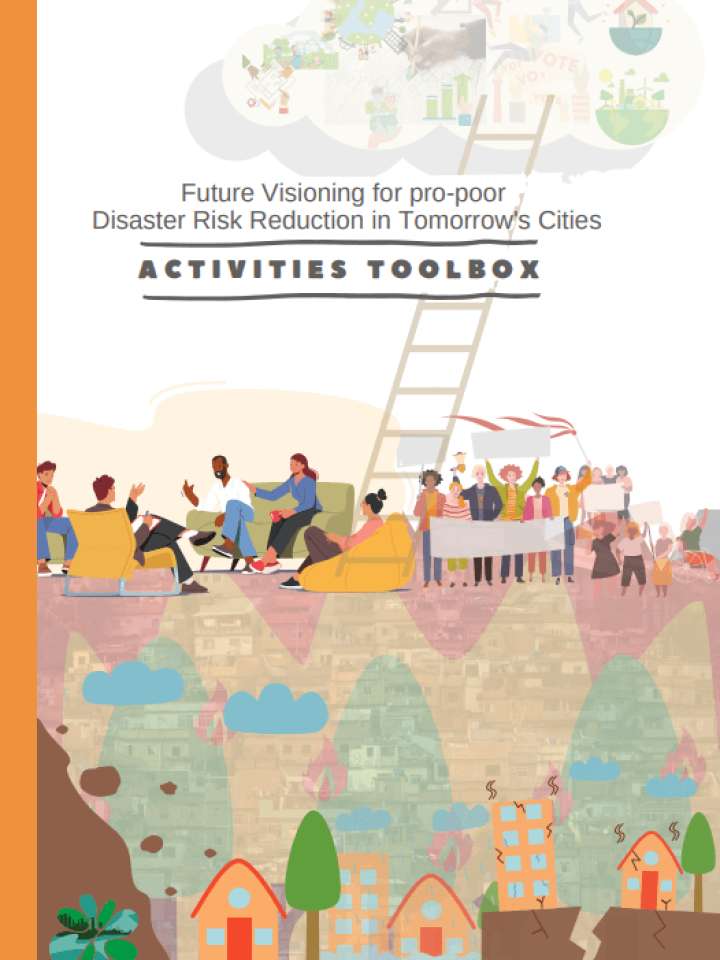Future visioning for pro-poor disaster risk reduction in tomorrow's cities: Activities toolbox
This document sets guidelines for Future Visioning within 'Tomorrow’s Cities Decision Support Environment'. It is meant to guide the elaboration, monitoring and evaluation of visioning approaches in the cities that are joining the research hub. It may also serve as an evaluation and learning tool for cities, communities and researchers generally interested in future visioning and scenario building techniques.
One of the fundamental ethos of Tomorrow’s Cities is creating a critical pedagogical environment for people empowerment and capacity building towards risk informed planning. In this context, critical pedagogical means a mode of learning from and about risk that increases the legitimacy and capacity of hitherto marginalised stakeholders and their ways of being and knowing the city. Drawing on this, future visioning unfolds on the basis of four main action points, which are later translated as a trajectory that guides the work of cities.
- First, this approach aims to support a diverse range of stakeholders, placing socio-spatial difference and conflict as a crucial challenge for inclusive and pro-poor risk informed planning.
- Second, future visioning works to harness aspirations and values for future cities, making risk-informed planning more normative and transformation-oriented rather than just a defensive practice.
- Third, this approach focuses on translating conceptual visions into qualitative spatial guidelines that will inform plans and visioning scenarios. That is, it works to materialise visions without losing track of values.
- Finally, it fosters discussions of how to turn visions into risk-oriented action, which will feed policy bundles in the hub. It encourages stakeholders to think of policies not as one-off actions led by one urban actor, but as a complex set of incremental decisions and practices that involve multiple stakeholders and sectors.
Explore further
